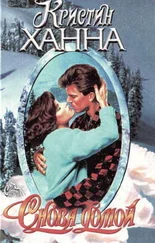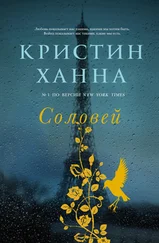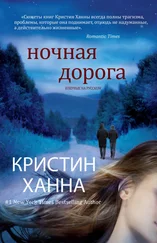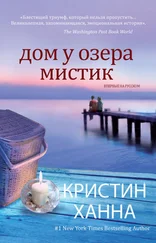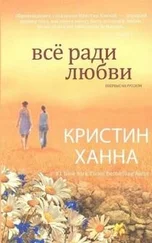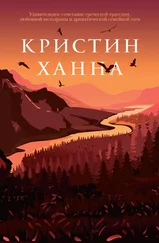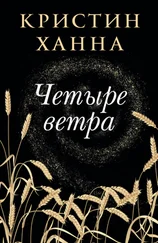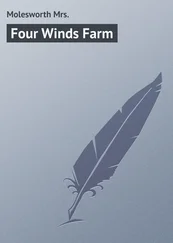For her child.
“Where should I put my things?”
FIVE
Mrs. Martinelli walked so fast it was hard to keep up with her.
“Are you hungry?” the diminutive woman asked as she bounded up the steps and strode past the collection of mismatched chairs on the porch.
“No, ma’am.”
Mrs. Martinelli opened the front door and stepped inside. Elsa followed her into the house. In the parlor, she saw a collection of wooden furniture and a scarred oval cocktail table. Crocheted white doilies hung on the backs of chairs. There were large crucifixes hanging on two of the walls
Catholic.
What did that mean, really? What had Elsa promised to become?
Mrs. Martinelli moved through the sitting room and went down a narrow hallway, past an open door that revealed a copper bathing tub and a washstand. No toilet.
No indoor plumbing?
At the end of the hall, Mrs. Martinelli pushed a door open.
A boy’s bedroom, complete with sports trophies on the dresser. An unmade bed faced a large window, framed by blue chambray curtains. Elsa saw a photo of Gia Composto on the bedside table. A suitcase—no doubt packed for college—lay on the bed.
Mrs. Martinelli scooped up the photograph and tossed the suitcase under the bed. “You will stay here, alone, until the wedding. Rafe can sleep in the barn. He loves that on a hot night anyway.” Mrs. Martinelli lit a lamp. “I will speak to Father Michael promptly. No need to draw this out.” She frowned. “I will need to talk to the Compostos.”
“Perhaps Rafe should do that,” Elsa said.
Mrs. Martinelli looked up. The small woman was a study in contradictions: she moved with the fast, furtive motions of a bird and looked fragile, but Elsa’s overwhelming impression was of strength. Toughness. She remembered Rafe’s family story, how Tony and Rose had come to America from Sicily with only a few dollars between them. Together they had found this land and survived on it, lived for years in a sod dugout they’d built themselves. Only tough women lasted on Texas farmland.
“I think he owes her that,” Elsa added.
“Wash up. Put your things away,” Mrs. Martinelli said. “We will see you in the morning. Things often look better in sunlight.”
“I don’t,” Elsa said.
Mrs. Martinelli studied Elsa for an agonizing moment, obviously found her lacking, and then walked away, closing the door behind her.
Elsa sat down on the edge of the bed, unable suddenly to catch her breath.
There was a quiet knock on the door.
“Come in,” she said.
Rafe opened the door and stood in the opening, his face dusty. He took off his cap, twisted it in his hands.
Then, slowly, he closed the door behind him. He came toward her, sat down on the bed. The springs protested at the additional weight.
She glanced sideways at him, seeing his perfect profile. So handsome.
“I’m sorry,” she said.
“Aw, heck, Els, I didn’t want to go to college anyhow.” He gave her a strained smile; black hair flopped across one eye. “I didn’t want to stay here, either, but…”
They looked at each other.
At last he took her hand, held it. “I’ll try to be a good husband,” he said.
Elsa wanted to tighten her hold on his hand, give a squeeze to show how much those words meant to her, but she didn’t dare. She was afraid that if she really held on to him, she’d never let go. She had to be cautious from now on, treat him as she would a skittish cat; be careful to never move too fast or need too much.
She said nothing, and in time, he let go of her hand and left her in his bedroom, sitting on his bed, alone.
THE NEXT MORNING, ELSA woke late. She pushed the hair from her face. Fine strands were stuck to her cheek; she’d cried in her sleep.
Good. Better to cry at night when no one could see. She didn’t want to reveal her weakness to this new family.
She went to the washstand and splashed lukewarm water on her face, then she brushed her teeth and combed her hair.
Last night, as she’d unpacked, she’d realized how wrong her clothes were for farm life. She was a town girl; what did she know about life on the land? All she’d brought were crepe dresses and silk stockings and heels. Church clothes.
She slipped into her plainest day dress, a charcoal-gray with pearl buttons and lace at the collar, then pulled up her stockings and stepped into the black heels she’d worn yesterday.
The house smelled of bacon and coffee. Her stomach grumbled, reminding her she hadn’t eaten since yesterday’s lunch.
The kitchen—a bright yellow-wallpapered room with gingham curtains and white linoleum flooring—was empty. Dishes drying on the counter attested to the fact that Elsa had slept through breakfast. What time did these people waken? It was only nine.
Elsa went outside and saw the Martinelli farm in full sunlight. Hundreds of acres of shorn wheat fanned out in all directions, a sea of dry, cut, golden stalks, with the homestead part taking up a few acres in the middle of it all.
A driveway cut through the fields, a brown ribbon of dirt bordered by cottonwoods and fencing. The farm itself consisted of the house, a big wooden barn, a horse corral, a cow paddock, a hog pen, a chicken coop, several outbuildings, and a windmill. Behind the house was an orchard, a small vineyard, and a fenced vegetable garden. Mrs. Martinelli was in the garden, bent over.
Mr. Martinelli came out of the barn and approached her. “Good morning,” he said. “Walk with me.”
He led her along the edge of the harvested wheat field; the shorn crop struck her as broken, somehow, devastated. Much like herself. A gentle breeze rustled what remained, made a shushing sound.
“You are a town girl,” Mr. Martinelli said in a thick Italian accent.
“Not anymore, I guess.”
“This is a good answer.” He bent down, scooped up a handful of dirt. “My land tells its story if you listen. The story of our family. We plant, we tend, we harvest. I make wine from grape cuttings that I brought here from Sicily, and the wine I make reminds me of my father. It binds us, this land, one to another, as it has for generations. Now it will bind you to us.”
“I’ve never tended to anything.”
He looked at her. “Do you want to change that?”
Elsa saw compassion in his dark eyes, as if he knew how afraid she’d been in her life, but she had to be imagining it. All he knew about her was that she was here now and she’d brought his son down with her.
“Beginnings are only that, Elsa. When Rosalba and I came here from Sicily, we had seventeen dollars and a dream. That was our beginning. But it wasn’t what gave us this good life. We have this land because we worked for it, because no matter how hard life was, we stayed here. This land provided for us. It will provide for you, too, if you let it.”
Elsa had never thought of land that way, as something that anchored a person, gave one a life. The idea of it, of staying here and finding a good life and a place to belong, seduced her as nothing ever had.
She would do her best to become a Martinelli through and through, so she could join their story, perhaps even take it as her own and pass it on to the child she carried. She would do anything, become anyone, to ensure that this family loved the baby unconditionally as one of their own. “I want that, Mr. Martinelli,” she said at last. “I want to belong here.”
He smiled. “I saw that in you, Elsa.”
Elsa started to thank him, but was interrupted by Mrs. Martinelli, who called out to her husband as she walked toward them carrying a basket full of ripe tomatoes and greenery. “Elsa,” she said, coming to a stop. “How nice to see you up.”
“I … overslept.”
Читать дальше

